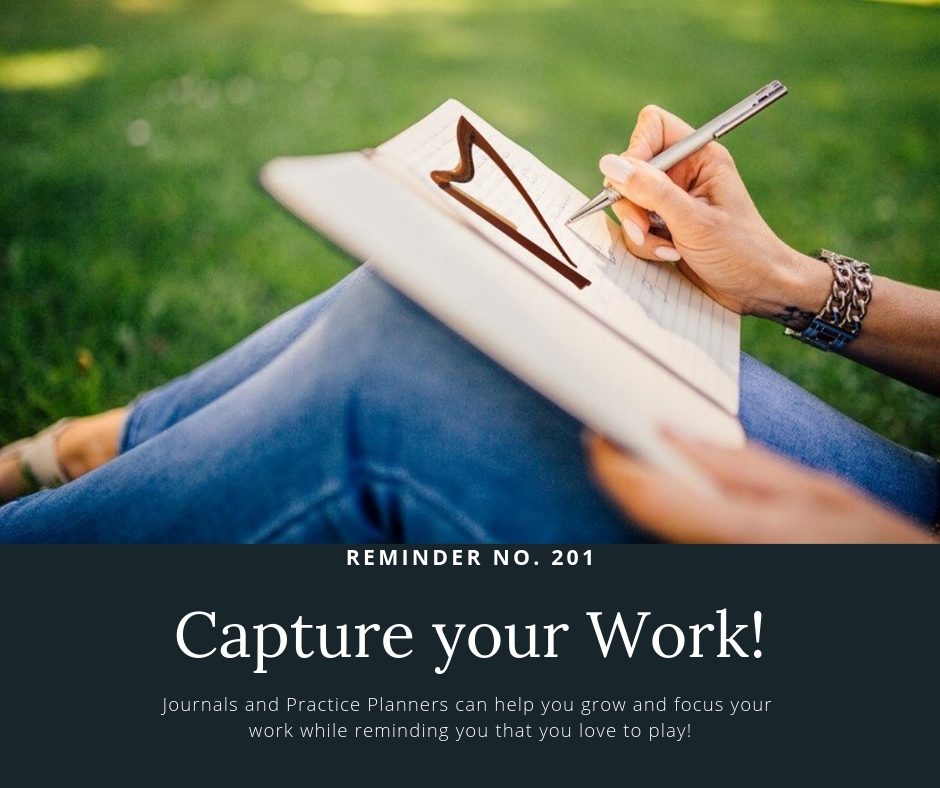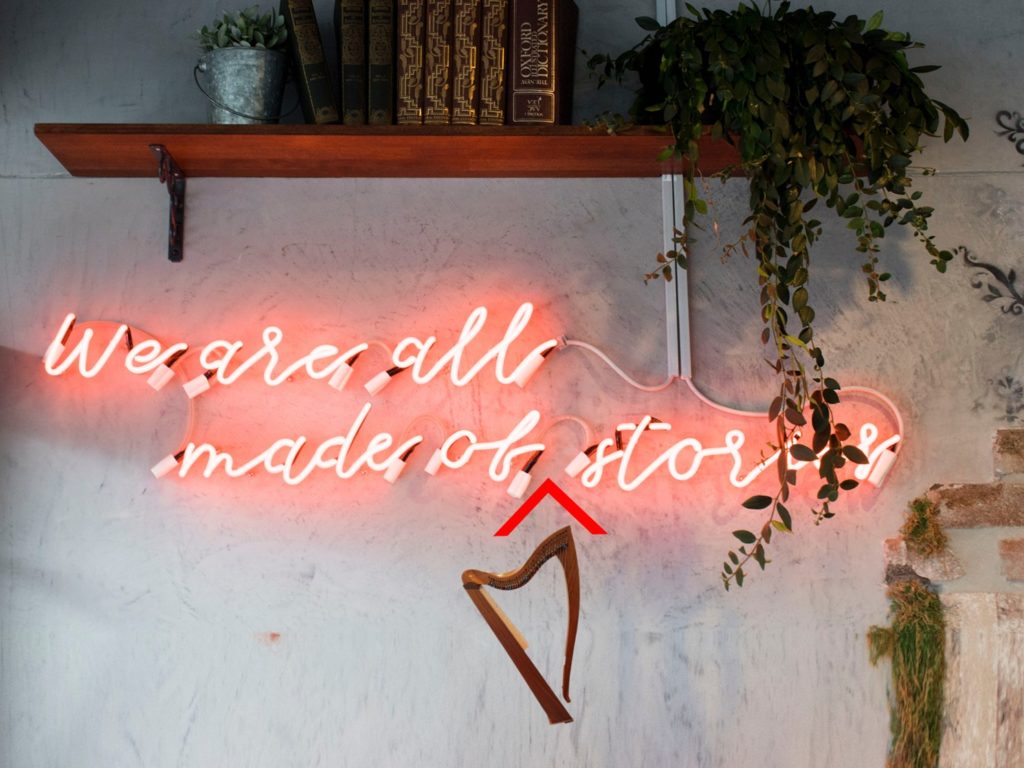You have endured my repeated suggestions that you keep a harp practice journal. I hope you have taken me up on my suggestion and that, in so doing, you have begun to understand why I make the suggestion. I also hope you saw, in short order, how the act of journaling can help you become a better harper. Simply by entering the conversation with yourself, you are able to capture your thoughts, feelings, successes, plans/goals and good ideas. And with review (or just idly flipping through) you can get an appreciation of all your hard work (and maybe a glimpse of the work you would be well advised to undertake – later…in the future….let’s not get too crazy!).
Recently, one of you asked about using a practice planner as a journal. Well, a planner is different from a journal, so today, some thoughts on each and an insight into how I (try) to use these with my students.
 Planners and Journals serve two different functions. A Planner is forward looking, capturing what you should be working on, and how to schedule it all into your practice time (by the hour, the day, the week, the month, the season, the year, etc.). It describes what your teacher (or you, if you are actively using it) would like you to work on so that you continue to grow and so that you build the skills needed for the repertoire you will attempt in the future. It helps to organize your time spent and usually includes short term goals (which are actually criteria that, when reached, indicate readiness to move forward).
Planners and Journals serve two different functions. A Planner is forward looking, capturing what you should be working on, and how to schedule it all into your practice time (by the hour, the day, the week, the month, the season, the year, etc.). It describes what your teacher (or you, if you are actively using it) would like you to work on so that you continue to grow and so that you build the skills needed for the repertoire you will attempt in the future. It helps to organize your time spent and usually includes short term goals (which are actually criteria that, when reached, indicate readiness to move forward).
A Journal, on the other hand, is, by definition, a retrospective of your work – mental, physical, emotional, and more. It can incorporate external factors (e.g. “I didn’t practice all week because I was on a cruise, but when I returned, I was delighted to be behind the harp once again and I quickly conquered my new tune that I was having trouble with before” or “I had a terrible week at work and I just didn’t feel like practicing which explains why I haven’t made progress with my tunes this week, but next week should be better!”). You write in your Journal after you practice or play, while reflecting on what happened, why, how you feel about that, and perhaps what you’d like to add to your planner (to avoid a negative or to reinforce something you see needs shoring up). And of course, you will, on occasion, go back and read through your thoughts and feelings to rediscover items that have fallen through your mental cracks.
A practice planner should be very clear and detailed – a set of instructions for the week. What (specifically) should you be focused on? At what point, then, do you move on for the next time? How many times to do the scales? In which key? What are your warm-ups this week? What skill builders will you do? What musicality exercises will you work on? How do you know when to stop? How good is good enough? What is expected of you in the practice time allotted?
A journal allows you to express your assessment of your practice time and your ideas on your progress (NB – this is NOT a platform for your inner critic! Rather you are capturing your opinion in a constructive way, so you can grow from it). You might include thoughts like “although I thought I’d never “get” those funky chord exercise note progressions, with three days of focused attention, I do “get” it and can now focus on the technique work that the exercise is needed for”. A little work, a little assessment, a little reflection, a lot of growth! You are also not limited in how you might capture those thoughts, reflections, and feelings – write, jot, paint, whatever will help you remember later on.
So, which should you have? A Planner or a Journal?
You need the Planner and the Journal! The real question is – in what form? The right answer is – in the form that works for you!
You can use simple planner sheet (want a free one? Subscribe here!) and a journal book. Then you have two things to work together to suggest your practice time. You want (and need) order and structure for the planner, so that the homework notes from your lesson help you to structure your practice time and to prepare for your next lesson. But you also need and want the freedom to capture your thoughts as they come and as they are best expressed. If you’re lazy like me, you want to have it all in one place. I prefer this for my students because it also provides a continuity to our discussion from lesson to lesson – one place for all thoughts.
Are you already journaling? Using a practice planner? What’s your method? And if you’re not, what’s stopping you? Journals and Practice Planners can help you grow and focus your work while reminding you that you love to play! No matter what form it takes, there is a lot of potential in writing it down. You can do this yourself – just get a notebook and start writing. But if you’d like a bespoke one, I can help you with that too – just leave a request in the comments and I’ll get back to you with details.


